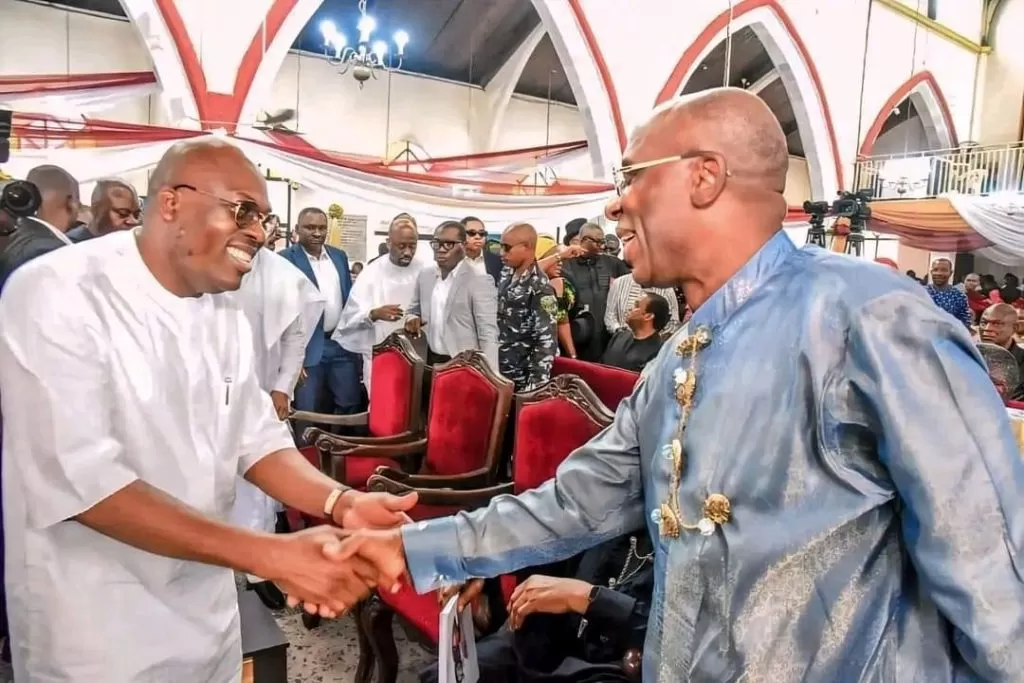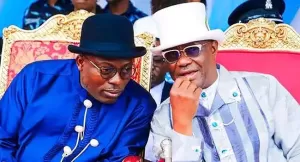A Governor should be respected as the political leader of the state party says Amaechi

Rotimi Amaechi, a former Governor of Rivers State and Minister of Transportation in Nigeria, has made statements that reflect his perspective on the Rivers political leadership within a party, particularly in the context of Nigerian politics. The former Governor made this statement in Opobo when he met with Governor Fubara.
From the information gathered:
- Amaechi’s Political Influence: Amaechi was a significant figure in the All Progressives Congress (APC) in Rivers State, where he was seen as the leader of the APC until recent times when his political activities and affiliations became less clear. This indicates that he viewed himself or was viewed by others as a key leader within the party structure, especially when he was the governor.
- Succession and Party Leadership: There’s an implication from various political maneuvers and conflicts, especially with his successor Nyesom Wike, that Amaechi believed in the governor’s role as pivotal in leading the party’s direction at the state level. This belief might stem from his own experience where, as governor, he significantly influenced the APC’s activities in Rivers State.
- Current Political Status: Recent reports and statements from APC leaders in Rivers State suggest uncertainty about Amaechi’s current standing within the APC, indicating a shift or perhaps a strategic withdrawal from active party leadership roles. This could imply a change in his views on how party leadership should function or his role within it, especially post his tenure as governor and minister.
- Public and Political Sentiment: From posts on X, there’s a mix of sentiments about Amaechi’s role in politics, with some suggesting he’s partyless or his influence waned, which indirectly touches upon the theme of how governors are perceived as party leaders. His actions, like contesting for the APC presidential ticket, show an attempt to leverage his gubernatorial legacy into broader party leadership.
Given this context, Amaechi’s perspective might align with the notion that a governor, due to the executive power and influence over state resources and political machinery, naturally becomes or should be the de facto leader of their party within that state. This view, however, seems to be challenged or evolving, especially in scenarios where governors like Wike or Fubara in Rivers State assert their leadership, or when Amaechi himself steps back from overt party leadership roles, suggesting that while a governor might traditionally hold significant sway, this isn’t universally guaranteed or permanent.
Amaechi’s experiences and the political dynamics in Rivers State illustrate that while a governor might typically be seen as the party leader due to their control over state apparatus and political patronage, this role can be contested, negotiated, or even relinquished based on personal political strategies, internal party conflicts, or shifts in political alliances.






